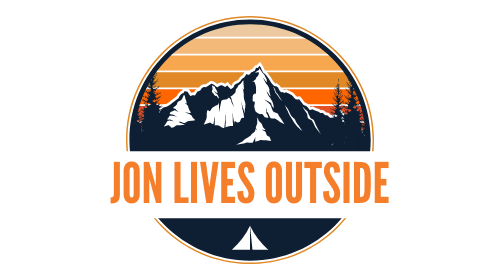Exploring The Benefits Of Hiking For Mental Health And Wellness
Hiking is a type of walking, usually done in a natural setting, such as a forest or mountain trail. It is becoming more popular as people seek to disconnect from the hustle and bustle of city life and experience nature. Hiking offers not only physical benefits but also mental and spiritual ones. This article explores the benefits of hiking for mental health and wellness.
Benefits of Hiking for Mental Health
Reduced Stress and Anxiety
Hiking, like any physical activity, can lower stress and anxiety levels. It releases endorphins, the body’s natural feel-good chemicals, which can improve mood and reduce stress hormones such as cortisol. In addition, hiking in nature has been shown to reduce rumination (overthinking), which is linked to depression and anxiety.
Boosted Mood and Self-esteem
Hiking can provide a sense of accomplishment and self-confidence. It allows people to set and achieve goals, which can be empowering. The scenery and fresh air also provide a positive energy boost that can help lift their mood. The sense of accomplishment gained from hitting one’s personal hiking goal is also useful for boosting self-esteem.
Improved Cognitive Function
Hiking has been shown to improve cognitive function, including memory and attention span. It may also reduce the risk of age-related cognitive decline. A study by the University of British Columbia found that participants who hiked in nature regularly had an improvement in their working memory.
Better Quality of Sleep
Hiking provides many physical and mental benefits that can contribute to better-quality sleep. Exposure to natural light and activity during the day helps regulate sleep patterns. Exercise also helps tire the body, making it easier to fall asleep and stay asleep. A study by the Journal of Sleep Research found that hiking and overnight camping in nature reset the body’s internal clock, leading to more restful sleep.
Benefits of Hiking for Physical Health
Increased Cardiovascular and Muscular Fitness
Hiking is a cardiorespiratory activity that improves cardiovascular and muscular fitness. When hiking uphill, the heart and lungs work harder, increasing oxygen intake and strengthening the cardiovascular and respiratory systems. The uneven terrain and natural obstacles provide a full-body workout that can improve balance, strength, and coordination.
Improved Bone Density
Hiking is weight-bearing exercise, which stimulates the growth and strengthening of bones. It can help reduce the risk of osteoporosis, a condition where bones become brittle, weak, and prone to breaking.
Weight Loss and Healthy Body Composition
Hiking, like any physical activity, can help with weight loss and maintaining a healthy body composition. It burns calories and increases muscle mass, which can boost metabolism and promote fat loss.
Connection to Nature and Spiritual Well-being
Exposure to Nature and Sunlight
Hiking helps people connect with nature and spend more time outdoors. Nature has a restorative effect on the mind and body, reducing stress and improving overall well-being. Natural light exposure can also improve mood and regulate sleep patterns. It is an excellent source of vitamin D, essential for bone health and a healthy immune system.
Time for Self-reflection
Hiking provides an opportunity for introspection and reflection. Being in nature, with no distractions or interruptions, allows people to disconnect from their daily lives and connect with themselves. They can use the time to release tension and work through difficult emotions. It’s an excellent way to improve mental clarity and gain a new perspective on life.
Sense of Freedom and Independence
Hiking promotes independence and self-reliance. The trails are often unmarked, and hikers need to navigate their way using a map and compass, which can be empowering. Hiking provides a sense of freedom, allowing individuals to explore new places, experience new things, and overcome challenges.
Connection to Something Greater than Oneself
Hiking is a solitary activity that allows people to become deeply immersed in nature. They may experience a sense of awe and wonder at the natural world, leading to a connection with something greater than themselves. Spiritually, this connection provides a new perspective on life, leading to greater happiness and fulfillment.
How to Start Hiking for Mental and Physical Health
Choosing the Right Trail
To start hiking, choose the right trail for your fitness level and goals. Find hiking trails that match your interests and fitness levels. Start with easier trails and gradually build up to more challenging ones.
Proper Gear and Clothing
Wearing appropriate gear and clothing is essential for a safe and comfortable hike. Invest in quality hiking boots or shoes, backpack, and clothing that is moisture-wicking and protective of heat, cold, or rain. Bring along lightweight gear such as hydration systems or hats and gloves to protect against sun and cold.
Safety Tips for Hiking
Safety is essential when hiking. Tell someone your location and expected return. Bring basic first-aid kits and learn basic wilderness skills such as how to read a map and compass, how to start a fire, and what to do in case of an emergency. Stay hydrated by carrying enough water with you.
Setting Achievable Goals and Tracking Progress
Setting achievable goals and tracking your progress is an excellent way to stay motivated while hiking. Keep track of your hikes by using hiking apps or journals, and celebrate your progress.
Hiking is a simple, affordable, and effective way to improve mental and physical health. It offers numerous benefits, including reduced stress and anxiety, improved cognitive function, better quality of sleep, and a connection to nature and spiritual well-being. Everyone can start hiking by choosing the right trail, proper gear and clothing, learning basic safety tips, and setting achievable goals.
FAQs
1. Is it safe to hike alone?
– Safety is paramount when hiking. It is best to hike with a partner or in a group, but if you are going solo, be sure to tell someone your location and expected return time, bring essential safety and first-aid items, and learn basic wilderness skills.
2. How often should I go hiking to reap the benefits?
– Hiking at least once a week can offer the most benefit, but as little as 30 minutes of hiking can improve mood, reduce stress and anxiety, and provide a sense of well-being.
3. What are the best shoes for hiking?
– Proper footwear is essential for a safe, comfortable hike. Invest in good quality hiking shoes or boots that offer support, protection, and good grip.
4. What are some good hiking trails for beginners?
– Beginners should start with easy hiking trails, such as those that are well-marked and not too steep. Some examples include local parks, nature reserves, and beginner-level hikes within State or National Parks.






